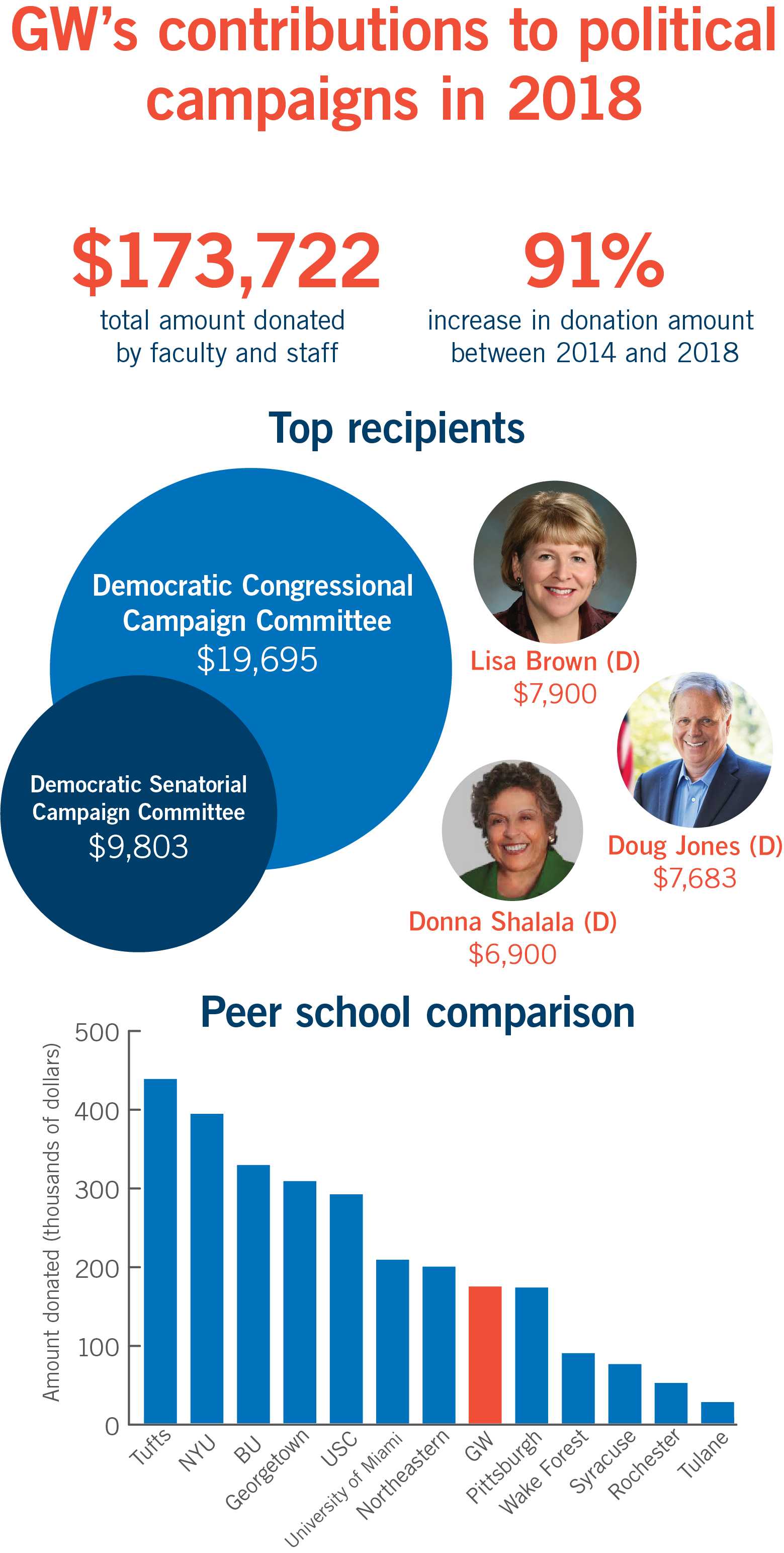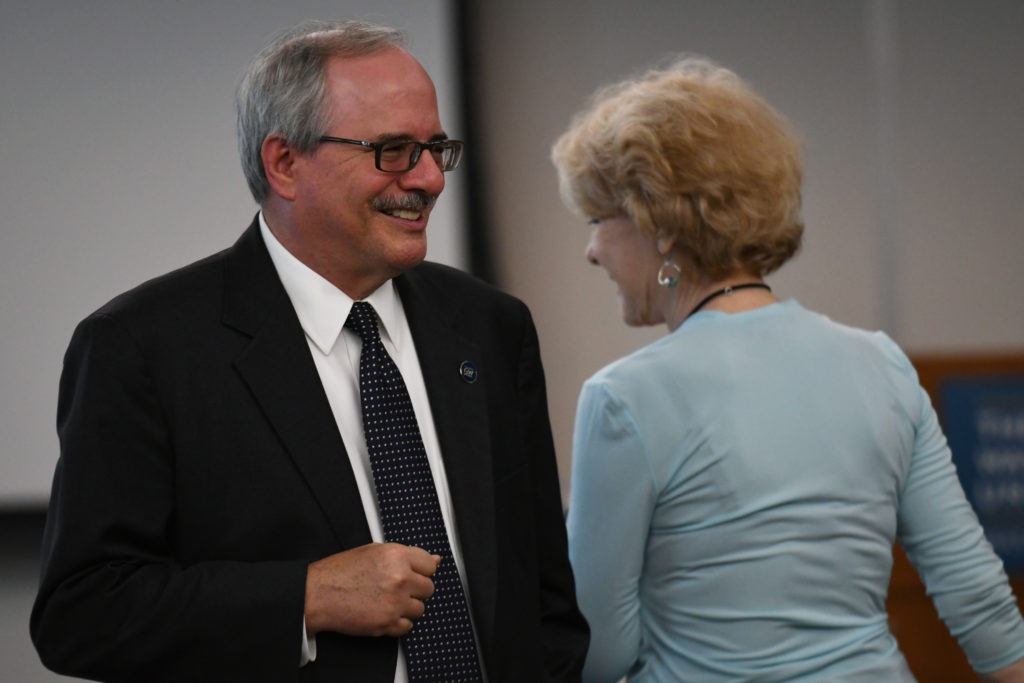Faculty and staff donated more than $170,000 to political candidates, PACs and political organizations over the past two years – the most donated during a midterm election cycle since at least 1990.
Total donations jumped by 91 percent from last midterm election cycle to $173,722, according to Federal Election Committee data compiled on Open Secrets, a nonprofit that tracks lobbying and campaign contributions. More than 85 percent of all donations were given to Democratic candidates – the most in a midterm election cycle in 12 years, according to the data.
Faculty and staff made a total of 1,572 donations, according to the data.
Employees donated the most to the Democratic Congressional Campaign Committee, the Democratic Senatorial Campaign Committee and to Lisa Brown, who is running as a Democrat in Spokane, Wash.

Emily Recko | Graphics Editor
Source: Federal election data via Open Secrets
University President Thomas LeBlanc donated $5,400 in two donations to the campaign for Donna Shalala, the former president of the University of Miami who is running to represent Florida in the House of Representatives. Former University President Knapp donated $2,000 in two sums to Gil Cisneros’ campaign for a seat in the House. Cisneros, an alumnus, has donated to GW’s student-athlete fund and gave $7 million in 2015 to become the namesake of the Cisneros Hispanic Leadership Institute, a research and professional development program for Hispanic students.
Campaign contributions also rose this year at all of GW’s peers except Tulane University, according to a Hatchet analysis.
GW ranks eighth of its peer schools, with faculty and staff raising about $38,000 below the average $211,666. GW is also more than $100,000 behind the average donation for D.C.-area colleges, ranking third in donation amounts.
Among GW’s peer schools, there was a 101 percent – or $106,456 – increase in political donations from employees from the 2013-14 election cycle. Tufts University faculty and staff donated the most money at $437,283, according to the data.
An even larger spike of $187,673 – about 207 percent – occurred at D.C.-area universities. Faculty and staff at American University donated nearly $600,000 to political candidates, organizations or PACs.
Contributions across peer and D.C. schools were mostly skewed toward Democratic candidates, PACs and organizations. Among peer schools, only five of the top 36 grossing candidates listed on Open Secrets were affiliated with the Republican party. There were no Republican affiliations in the top faculty donations from other D.C. schools.
About $30,000, or 17 percent, of GW faculty’s campaign contributions went to the Democratic Congressional Campaign Committee or the Democratic Senatorial Campaign Committee.
Anthony-Samuel LaMantia, a professor of anatomy and regenerative biology, said that when he lived in North Carolina a few years ago, he didn’t donate as much to campaigns because he was also donating his time supporting campaigns in a state with close political races. He gives more money now because he can’t volunteer for a congressional campaign in the District, he said.
“I want to make sure that I can still make a contribution,” he said.
LaMantia donated nearly $200, split between the Democratic Congressional Campaign Committee and Americans for Democratic Action fund.
David Shinn, a part-time faculty member in the international affairs department, said living in D.C. means there are no options to directly support candidates who will represent him. He said donating more than $500 to the Senate Majority PAC and Democratic Congressional Campaign Committee allowed him to donate to candidates who share his political views.
“The only way I felt I could do it was to work through an organization that I hope will use the funds most appropriately to support those candidates that have the greatest need for it,” he said.
He said he donates regularly to candidates during presidential elections, but this year, he donated to political organizations that supported candidates who backed his own domestic and foreign policy views that are not promoted under the Trump administration.
“I just think that it’s time to support candidates who will do things differently,” he said.
James Bailey, a Hochberg Professorial Fellow in the management department, said he donated to Benjamin Wolf, a friend who is running to represent Illinois in the House. He said this is the first time he has ever made a political financial contribution because his friend was running for office.
“I think the current political climate has a lot of us a little bit worried and a little bit concerned, but I think I would’ve done so anyway given I know and trust the candidates,” he said.





